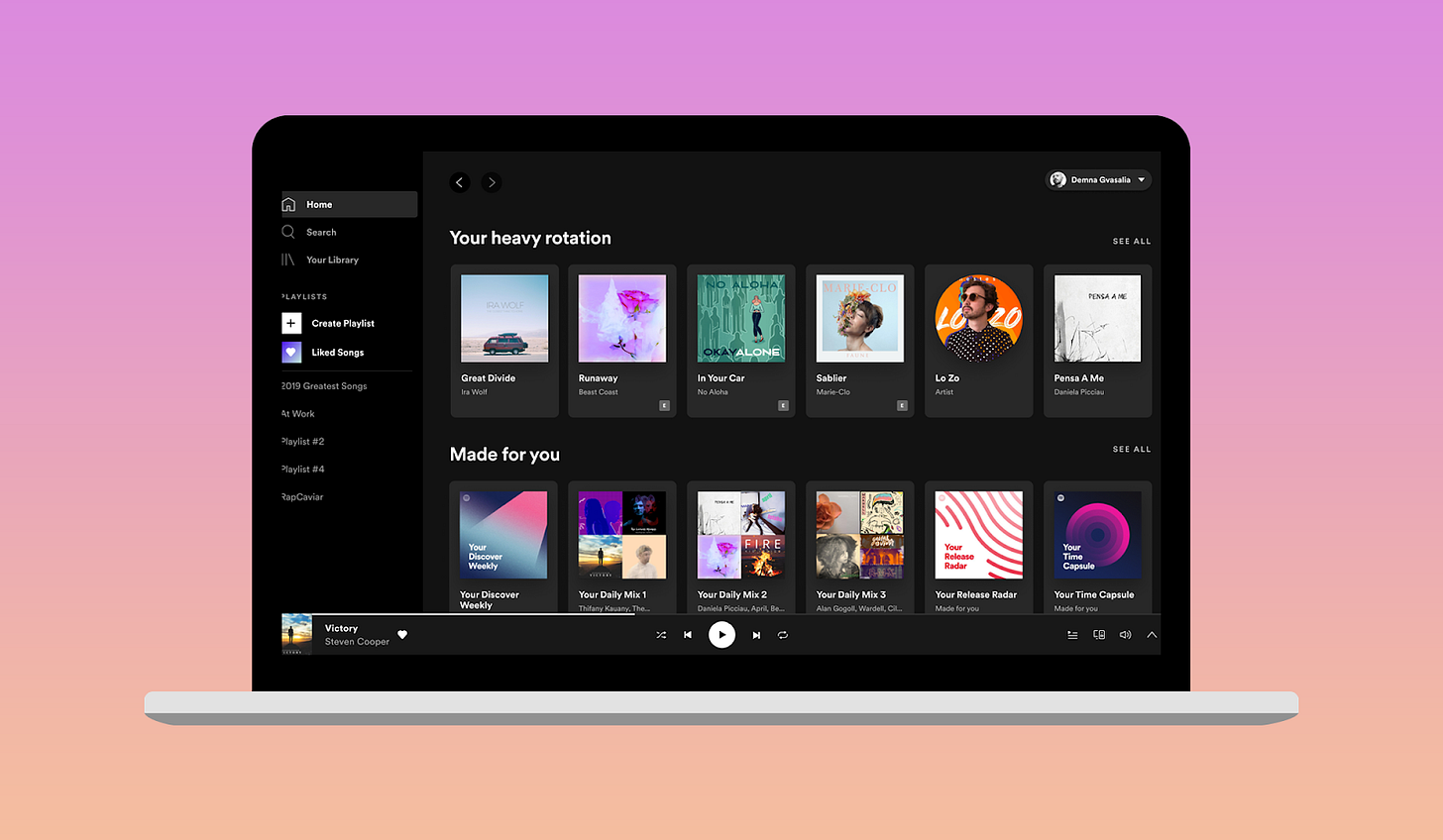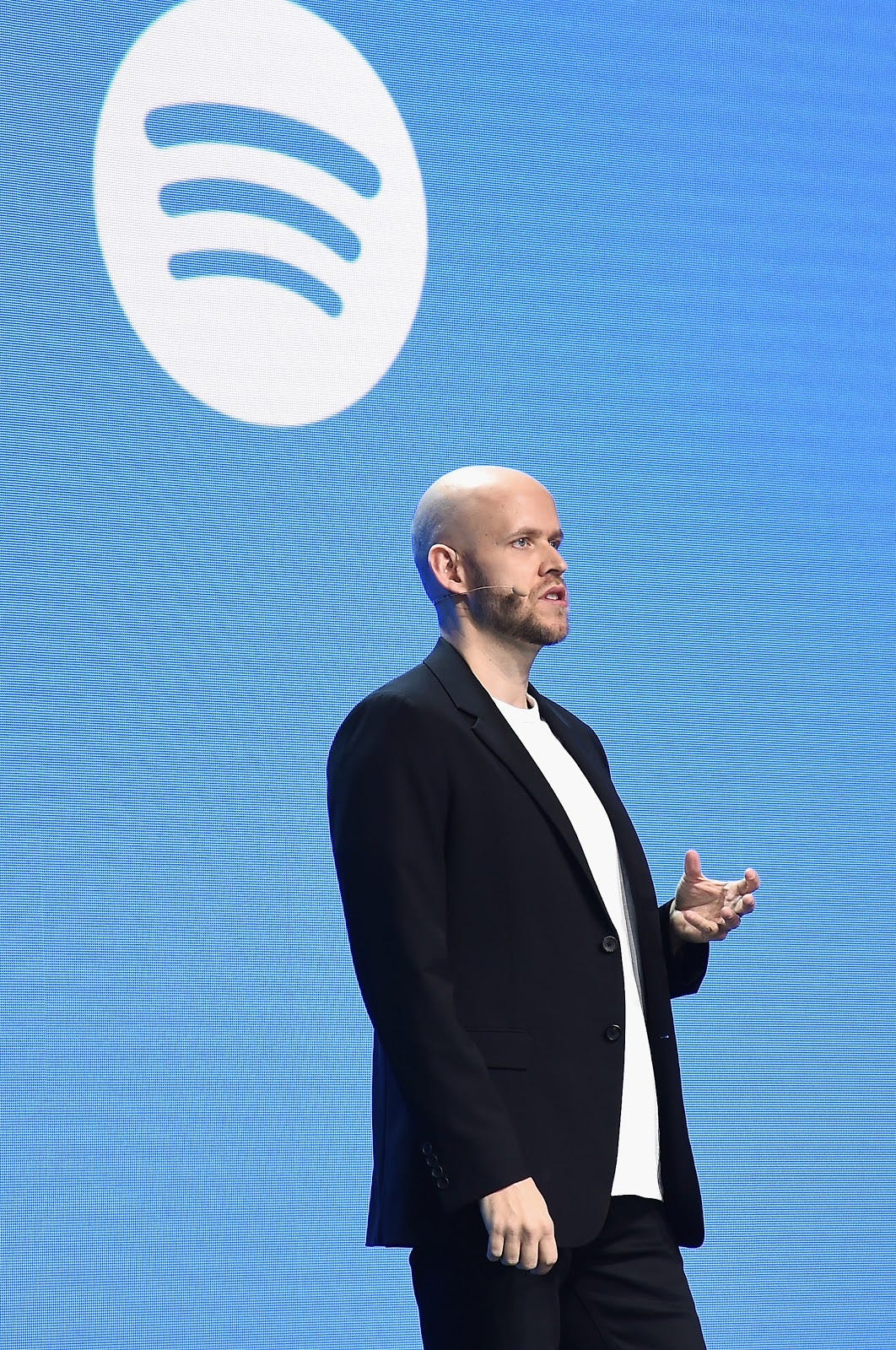The internet economy is fracturing into a small number of massive platforms and a long-tail of niche businesses. Spotify sits somewhere in the middle, an increasingly lonely position. The company successfully competes with Amazon, Apple, and Google, three of the world’s largest companies. Founded in Stockholm, it’s one of the only European tech firms to become a household name. Below are a few lessons from Daniel Ek, Spotify’s founder and CEO.
Big Rocks
Ek doesn’t spend much time thinking about quarterly goals. Instead, he concentrates on Spotify’s long-term outlook and strategic bets, or “big rocks.” Transitioning Spotify from a music company to an audio company, for instance. This means adding new forms of content to shift from entertaining users to educating and informing them as well. Podcasting is central to this strategy, and Spotify has invested hundreds of millions of dollars acquiring podcast producers and publishers and signing creators like Joe Rogan and Michelle Obama to exclusive deals.
Ek is currently immersing himself in Spotify’s 2025 plans. This focus on the company’s medium- and long-term outlook requires heavy delegation. Ek trusts his team to manage day-to-day operations. This practice is consistent with William Thorndike’s findings in The Outsiders that successful CEOs focus on long-term strategic and capital allocation decisions, while delegating or decentralizing daily operations.
Competing with Giants
Few markets can support over one billion users. Ek believes audio can. However, big markets attract fierce competition. Intense focus on the consumer experience has been Spotify’s bulwark against competitors.
The company has been in a knife fight since day one. Initially, Spotify competed with free (and illegal) peer-to-peer file sharing services like Kazaa and Napster. Today, the company goes head-to-head, er, ear-to-ear with Apple Music and Amazon Prime Music, services backed by trillion dollar companies.
Spotify focused on convenience and trust to win against file sharing. While record labels fought Napster in court, Spotify developed a streaming product that consumers would pay for and record labels would benefit from. Ek’s goal was to make all of the world’s music accessible on a user's hard drive. Consumers ultimately paid for convenience and peace of mind. Unlike file sharing, record labels benefitted from Spotify’s growth, receiving over sixty cents for every dollar in revenue that the company generated.
Competitive intensity is even higher today. Unlike Netflix, which can attract viewers with tens of billions of dollars worth of unique content, Amazon, Apple, and Spotify all have access to the same music catalogs. Music supply is commoditized, shifting the axis of competition to product. To win, Ek is focused on the user experience.
Discovery, or helping users find content they love, has been one of Spotify’s key differentiators. The company has invested heavily in artificial intelligence and machine learning to power its discovery engine. Nearly one-third of streams come from machine generated playlists, according to its F1. Spotify has also invested in human curation. According to Ek, users who find at least one new piece of content they like every month tend to stick around. This is a reason for optimism on the company’s push into audio.
Ek is focused on the user experience. Spotify runs a freemium business model, with a free tier supported by ads and premium tier supported by monthly subscriptions. Ek is agnostic between the two. He’s focused on maximizing Spotify’s user base, which numbered 299 million in Q2 2020, up 29% Y/Y. Increasing pricing isn’t viewed as a near-term revenue growth driver. The company’s strategy is to get as many of the one billion plus potential audio customers using Spotify, whether free or paid.
Ek feels good about the company's ability to compete with tech giants when the playing field is even. Of course, by levying app store fees, controlling the defaults, and selling their own hardware, the playing field with Apple and Google isn’t even. Spotify’s growth becomes more impressive in this light.
More Thinking, Fewer Meetings
Ek believes that most executives spend too much time in meetings and not enough time thinking. Dilbert agrees. Additionally, he sees improving meetings as the “single largest source of optimization for a company.” According to Ek, three elements need to be clear to have a successful meeting: the desired outcome, the various options, and the roles of each participant.
Generally, Ek takes three or four meetings a day and keeps plenty of time blocked on his calendar for thinking. He also takes a walk every morning (even during the Swedish winter) because this is where he does his best thinking.
Ek values different perspectives and transparency. Spotify’s US headquarters are in New York, away from the echo chamber of Silicon Valley. He actively seeks out differing viewpoints, spending more time with business leaders outside of the tech industry than inside it. A desire for more transparency was one of the motivating factors behind Spotify’s 2018 direct listing, with Ek wanting all investors to have access to the same information at the same time. This attitude is also prevalent in interactions with Spotify's board of directors. The company recruits operators for its board and leverages them in making strategic decisions. To enable this, it provides the board with the complete picture, not some polished deck where everything is up and to the right.
For more like this once a week, consider subscribing 👇
👉 If you enjoyed reading this post, feel free to share it with friends!
Digging Deeper
If you’re interested in digging deeper on this topic, here are the resources referenced above:
Audio First, Spotify, February 2018.
Bloomberg Studio 1.0: Spotify CEO Daniel Ek, Bloomberg, May 2020.
Daniel Ek Interview, The Observer Effect by Sriram Krishnan, October 2020.
Daniel Ek - The Future of Audio, Invest Like the Best Podcast, November 2019.
Spotify CEO Daniel Ek at Code 2018, Recode Media, May 2018.







